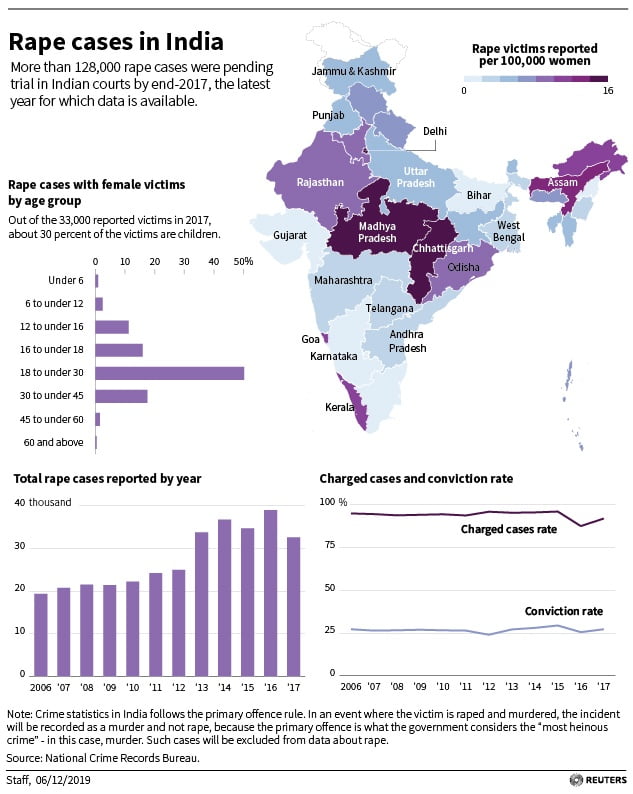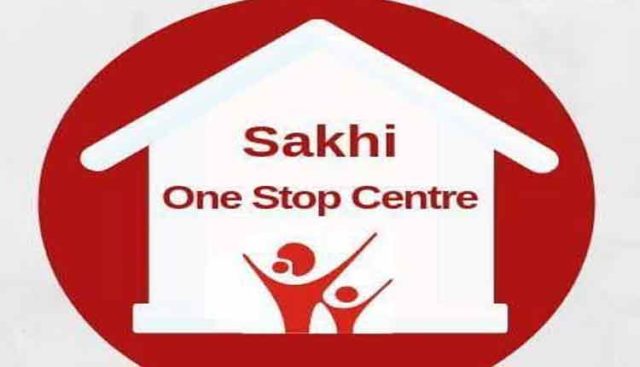The Article 1 of the UN Declaration defines Gender-Based Violence as “any act of gender-based violence that results in, or is likely to result in, physical, sexual or psychological harm or suffering to women, including threats of such acts, coercion or arbitrary deprivation of liberty, whether occurring in public or in private life”.
A startling number of rape cases were registered with the police in 2017, out of which more than 30% were cases of violence against children.
This number is of the cases that were actually reported. Thousands of cases of violence against women and girl children go unreported, either due to the stigma attached to these issues or because of the fact that women lack enough knowledge of the legality of filing complaints.
Here is crisp know-how of how to file complaints against offences against women as well as the proceedings that follow:
The First Step- Filing An FIR:
- Visit the nearest police station to file the FIR.
- Narrate verbally the details of the incident. An entry will be made in the general diary.
- After going through the details and reading them out to you, you will be asked to sign the FIR.
- Ensure to take two copies of the FIR, which will contain the FIR number, date and the police station. (it is for free)
An e-FIR can also be filed for cognizable offences such as sexual assault, by visiting the Delhi Police Official Website.
- Scroll down and select the ‘Services’ option.
- Choose the option ‘Complaints’.
- File the FIR accordingly.
- After this, you will receive a copy of the same in your mail-ID. Take its print for further procedure.
Also Read: The History Of Modern Art
Eve Teasing And Its Legal Punishment:
Eve teasing and molestation are the commonest of problems faced by women in the country. What many of us don’t know is that eve-teasing is a cognizable offence, which means that the police have an authority to start the investigation on the matter (based on the filed FIR) even without an arrest warrant.
- According to Section 294 of the Indian Penal Code (IPC), if a man is found guilty of committing any act(s) of obscenity against a woman, such as, passing lewd comments and/or making inappropriate gestures, he can be punished up to 3 years.
- As per Section 354 (and Sections 354 A, 354 B, 354 C and 354 D) of the IPC, if the offence goes beyond verbal comments or gestures to touching the woman inappropriately and/or groping her, showing her pornographic content or any form of verbal or physical coercion that may pose a threat to her safety and modesty, he can be charged under this section. This is a non-bailable offence, the punishment for which extends from 1-5 years.
However, the term itself finds no mention anywhere in the IPC, as it is regarded merely as an attitude, mindset, and a particular set of behaviour.
What Accords For ‘Rape’ Under Our Laws:
According to the National Commission for Women, rape is said to have taken place when a man has sexual intercourse with a woman-
- Against her will
- Without her consent
- If the consent is obtained by putting her on or someone she is interested in, in fear of death or hurt
- She is below 16 years of age, even if she consents to such an act
Sadly enough, marital rape does not qualify as being a “rape”. So, even if a woman is forced to have sex with her husband against her will, this won’t be counted as a criminal offence. (Mostly because, under the patriarchal framework that our society is hinged upon, a wife is still regarded as her husband’s possession)
Punishment For Rape:
As per the NCW, the punishment for rape is at least 7 years and may extend up to 10 years.
In some cases, the minimum punishment for rape is 10 years. They are:
- If the man knows the woman to be pregnant and rapes her
- If the girl’s age is less than 12 years
- Gang rape
- Custodial rape
Well, even though the law has stringent provisions against an offence as inhuman as rape, actual legal proceedings (even despite the setting up of Fast Track Courts) is quite lethargic, resulting in the cases being stretched on and on for years.
One-Stop Centres (OTCs), A Possible Ray Of Hope:
The Ministry for Women and Child Development has come up with OTCs to support women affected by gender-based violence in private and public spaces, family and workspace.
The scheme was implemented in April 2015, and as of now, there are around 624 centres all across India. OSC can be accessed either by the woman herself or through a friend or family member.
Image Sources: Google Images
Sources: Ministry of Women and Child Development, India Today, Reuters
Find Blogger @Rhetorician_rc
Other Recommendations:
In Pics: ‘The Rapist Is You’ Theme Is So Powerful, It’s Taking Over India Too






































